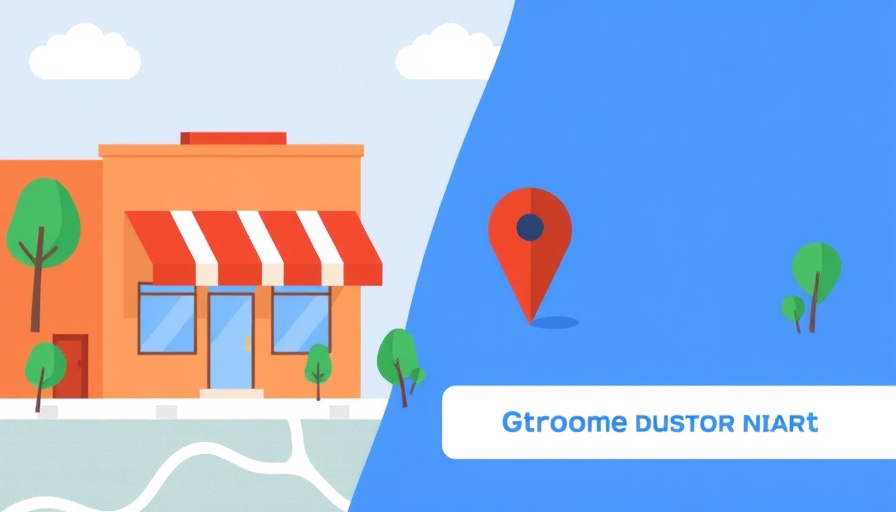
The Importance of Listing Your Business on Google
In today's digital landscape, having an online presence is essential for any business. A significant aspect of this is submitting your business to Google, which ensures that potential customers can find you through online searches. In fact, nearly 80% of consumers turn to Google before visiting a local business. Therefore, optimizing your Google Business Profile is not just a good idea—it's a necessity. Being listed on Google enhances your visibility and significantly boosts your chances of conversion.
How to Optimize Your Google Business Listing
Listing your business on Google involves several steps, but optimizing it requires thoughtful execution. Start by claiming your business profile on Google My Business (GMB). Fill out all necessary details, including your business name, address, phone number, and website URL. These details should mirror those on your website to avoid confusion and improve local SEO.
Next, select appropriate business categories and services, as these help potential customers find your services more easily. High-quality images showcasing your products and services further enhance your profile and attract more visitors.
Leveraging Customer Reviews
One underrated aspect of Google listings is customer reviews. According to recent studies, customers look for businesses with at least a four-star rating before deciding to engage. Encourage your satisfied customers to leave reviews, as these can improve your online reputation and help your business rank higher on search results.
Responding to these reviews, both positive and negative, shows potential customers that you care about their feedback. Engaging with the community not only builds trust but also fosters loyalty.
Insights from Marketing Automation Trends
As businesses increasingly adopt marketing automation tools, integrating these with your Google listing can maximize efficiency. For example, using CRM software alongside your Google Business Profile can streamline review management and customer interactions. According to recent digital marketing trends, businesses that utilize such integrated systems see improved customer engagement and ROI.
Best Practices for Local SEO
Successfully getting your business listed on Google is only half the battle; you must also implement local SEO best practices. This includes optimizing for voice search, which has rapidly grown in popularity. Tailoring your listings to capture conversational queries increases your chances of being found when potential customers ask a voice-activated device for nearby services.
In addition, keeping your business information updated is crucial. If you change your hours, add new services, or have seasonal offerings, ensure your Google Business Profile reflects these changes.
Understanding Google’s Algorithm Updates
Staying informed about search engine algorithm updates is vital for maintaining your visibility. Google frequently updates how it ranks businesses in search results, and understanding these changes can provide your business a competitive edge. For instance, recent shifts in how local SEO is ranked mean that incorporating semantic search optimization can elevate your presence.
Final Thoughts: Why Every Business Should List on Google
In conclusion, the digital marketplace is growing exponentially. Ensuring your business is listed on Google not only enhances visibility but also increases your chances of reaching local customers. As we delve deeper into 2025, adapting your marketing strategies, including effectively listing your business, is crucial in a world dominated by digital interactions.
Ultimately, the step-by-step process of listing and optimizing your profile positions you more favorably in local search results. For businesses of all sizes, Google My Business should remain a priority in your overall marketing strategy, ensuring you tap into the wealth of opportunities it brings to your brand.
 Add Row
Add Row  Add
Add 




Write A Comment